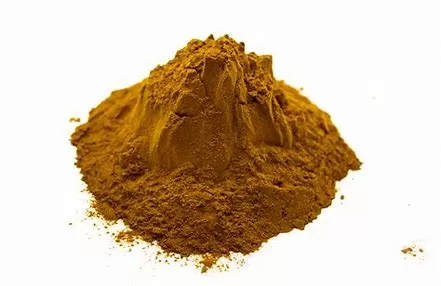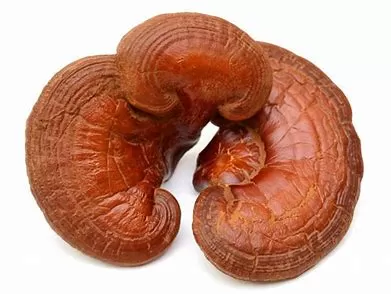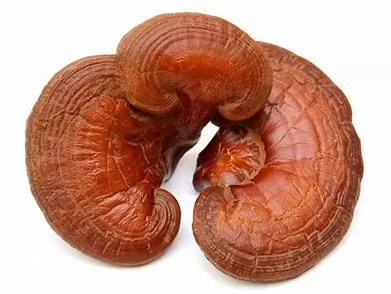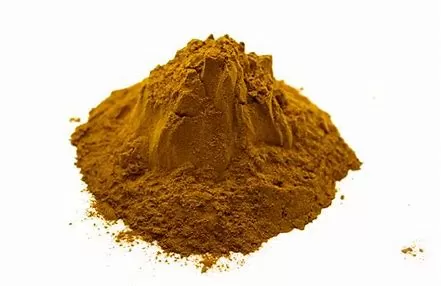- 0086-571-85302990
- sales@greenskybio.com
The Impact of Reishi Mushroom on Brain Health: A Comprehensive Review
2025-04-02
In the realm of natural supplements and traditional medicine, few remedies have captivated the attention of health enthusiasts and researchers like the Reishi mushroom. Known scientifically as Ganoderma lucidum, Reishi has been used for thousands of years across Asia for its purported health benefits. In recent years, interest has surged in evaluating the mushroom's specific impacts on brain health. This article delves into what current science reveals about Reishi's effects on the brain, exploring its potential as a cognitive enhancer, a neuroprotective agent, and a remedy for mental health issues.
Reishi Mushroom: Overview
The Reishi mushroom is renowned for its rich composition of bioactive compounds, including polysaccharides, triterpenes, peptidoglycans, and sterols. These compounds are believed to confer various health benefits, ranging from immune system support to anti-inflammatory effects. With a distinctive reddish-brown color and a glossy exterior, the Reishi mushroom enjoys a revered status in traditional Chinese medicine, often referred to as "the mushroom of immortality" due to its longevity-promoting properties.
Cognitive Enhancement
Research suggests that the bioactive compounds found in Reishi may support cognitive function. Polysaccharides, one of the key components, are thought to enhance the central nervous system by improving neuron connectivity and communication. These benefits could translate into improved memory retention, sharper focus, and a heightened capacity for learning.
Moreover, studies in animal models have demonstrated that extracts from Reishi can stimulate angiogenesis, the formation of new blood vessels. This process enhances cerebral circulation, potentially improving the delivery of oxygen and nutrients essential for maintaining optimal brain function. Consequently, Reishi may emerge as a natural supplement for individuals seeking cognitive enhancement, particularly those facing age-related cognitive decline.
Neuroprotection
Reishi's potential neuroprotective qualities are among its most promising attributes. Oxidative stress, a primary contributor to neurodegenerative diseases like Alzheimer's and Parkinson's, is characterized by an imbalance between free radicals and antioxidants in the body. Reishi is rich in triterpenes, which exhibit potent antioxidant properties that counteract oxidative stress, providing a shield against neuronal damage.
Additionally, inflammation is a major factor in the progression of neurodegenerative conditions. Reishi's anti-inflammatory properties stem from its ability to inhibit the release of pro-inflammatory cytokines. This mechanism may prevent the chronic inflammatory pathways known to exacerbate neurodegeneration. As a result, Reishi mushroom supplementation could offer significant protection against conditions that compromise brain health.
Mental Health Benefits
The link between Reishi and improved mental health is gaining attention as researchers explore its potential effects on mood regulation. Anxiety and depression, pervasive mental health challenges worldwide, may be alleviated by Reishi's ability to modulate neurotransmitter production. Triterpenes found in Reishi are believed to influence the production of serotonin and dopamine, neurotransmitters critical for balanced mood and emotional well-being.
Furthermore, preliminary research implies that Reishi may exert adaptogenic effects—helping the body adapt to stress and restore homeostasis. For individuals suffering from chronic stress or burnout, Reishi could thus serve as a therapeutic agent, promoting resilience and mental clarity.
Safety and Side Effects
While Reishi mushroom is generally considered safe for consumption, it is essential to approach supplementation with caution. Potential side effects, although rare, can include digestive upset, skin rashes, and dizziness. Individuals with autoimmune conditions should consult with a healthcare provider before incorporating Reishi into their regimen, as its immune-modulating effects may interfere with existing treatments.
Additionally, those on anticoagulant medications should be aware of Reishi's potential impact on blood clotting—another reason why professional guidance is crucial when considering Reishi supplementation.
Conclusion
The Reishi mushroom remains an intriguing avenue for enhancing brain health, with promising effects on cognitive function, neuroprotection, and mental well-being. As scientific research continues to unveil the mysteries surrounding this extraordinary fungus, it appears increasingly likely that Reishi could play a pivotal role in future therapeutic strategies for brain health.
However, it is vital to note that while current findings are optimistic, comprehensive human trials are needed to confirm Reishi's efficacy and safety. Integrating Reishi into a brain health strategy should be undertaken with informed caution, guided by both scientific evidence and professional medical advice.
Ultimately, the exploration of Reishi mushroom's impact on the brain highlights a compelling intersection of ancient wisdom and modern science, offering a testament to the enduring relevance of natural remedies in contemporary health practices. Whether for cognitive enhancement, neuroprotection, or mental health support, Reishi presents an exciting possibility within the broader discourse of holistic well-being.
- ▶ Hesperidin
- ▶ citrus bioflavonoids
- ▶ plant extract
- ▶ lycopene
- ▶ Diosmin
- ▶ Grape seed extract
- ▶ Sea buckthorn Juice Powder
- ▶ Beetroot powder
- ▶ Hops Extract
- ▶ Artichoke Extract
- ▶ Reishi mushroom extract
- ▶ Astaxanthin
- ▶ Green Tea Extract
- ▶ Curcumin Extract
- ▶ Horse Chestnut Extract
- ▶ Other Problems
- ▶ Boswellia Serrata Extract
- ▶ Resveratrol Extract
- ▶ Marigold Extract
- ▶ Grape Leaf Extract
- ▶ blog3
- ▶ blog4
- ▶ blog5
-
Does reishi balance hormones?
2025-04-02
-
Daily Use of Reishi: Safety and Benefits
2025-04-02
-
Does Reishi Mushroom Make You Look Younger?
2025-04-02
-
Does Reishi Mushroom Extract Help You Sleep?
2025-04-02
-
What is Reishi Mushroom Extract Used For?
2025-04-02
-
Baicalin
2025-04-02
-
Andrographis Paniculata Extract Powder
2025-04-02
-
White Willow Bark Extract
2025-04-02
-
Pomegranate Extract
2025-04-02
-
Peppermint Oil
2025-04-02
-
Centella Asiatica Extract
2025-04-02
-
Fenugreek Extract Powder
2025-04-02
-
Acerola Extract
2025-04-02
-
Nettle Root Extract
2025-04-02
-
Purple Sweet Potato Extract
2025-04-02






























